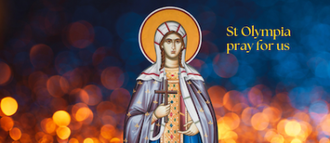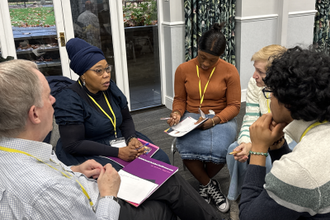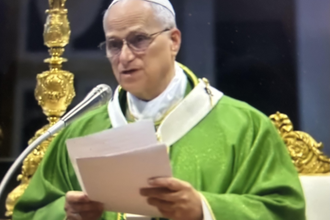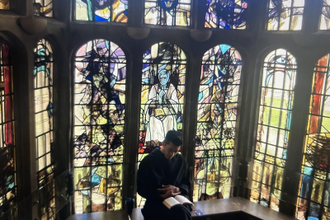From Synod to Action: Women's Vocation and Leadership

"By virtue of Baptism, women and men have equal dignity as members of the People of God. However, women continue to encounter obstacles in obtaining a fuller recognition of their charisms, vocation and roles in all the various areas of the Church's life." So begins a key paragraph of the final document of the Sixteenth Ordinary General Assembly of the Synod of Bishops: For A Synodal Church: Communion, Participation, Mission. In other words, the Synod is finished, the work must now begin.
Recognising the key Biblical figures of Our Lady and St Mary Magdalene, paragraph 60 traces a line from them to the women "moved by the Spirit" who today who are active in and often lead Christian communities. They are equally active in social justice and reconciliation, and as theologians and officers in regional curias in the Vatican. But "women continue to encounter obstacles in obtaining a fuller recognition of their charisms, vocation and roles in all the various areas of the Church's life."
Diagnosis isn't enough, so it's wonderful to read a trajectory from theology to action. Just as there are women who have been led by the Spirit, so "what comes from the Holy Spirit cannot be stopped… This Assembly asks for full implementation of all the opportunities already provided for in Canon Law with regard to the role of women, particularly in those places where they remain under-explored." And further: "the question of women's access to diaconal ministry remains open. This discernment needs to continue."
The first conference on Women and Diakonia we held last year revealed the remarkable and life-giving pastoral ministry and leadership which women are accomplishing in the Church, and compelling evidence of the ordination of women to the diaconate in the early Church, something recently underlined by. In the light of concerns expressed across the Church that diaconal ordination is really just "the thin end of the wedge" aimed at ordaining women priests, what was abundantly clear from the women who spoke at the conference is that they were not looking for service at the altar, even as deacons. Rather, what they sought was a proper recognition in the Church for their ministry and vocation, a context in which they, their ministry and the people they minister to could be heard and properly involved in decision making.
Our second conference aims to be both prophetic and enabling, in response to the Synod's call for discernment. There will be more discussion time than last year, so that everyone can be involved in this synodal process. Professor Bernard Pottier's paper The Church: Women and Men Together very much reflects the spirit of the Synod document. The Maronite Catholic Church (the majority church in Lebanon) had women deacons approved by the Vatican in the 18th century, so we are thrilled to have a paper from Maronite theologians Prof Souraya Bechealany and Maryse Saghbini. The conference will conclude with the Mary Ward Lecture, given by diaconal expert Prof Phyllis Zagano, who will speak on The Synod, the Diaconate and Women. So come next Friday - come and be part of the Church's discernment for women in ministry and for all those they serve.
Dr Dominic White is Acting Director of Research at the Margaret Beaufort Institute
Book your place for this Synodal Conference here:
Women and the Diokonia at the Woolf Institute
Margaret Beaufort Institute of Theology
Madingley Road, Cambridge CB3 0UB
Women & Diakonia 2 Tickets, Fri, Nov 15, 2024 at 10:00 AM | Eventbrite.


















